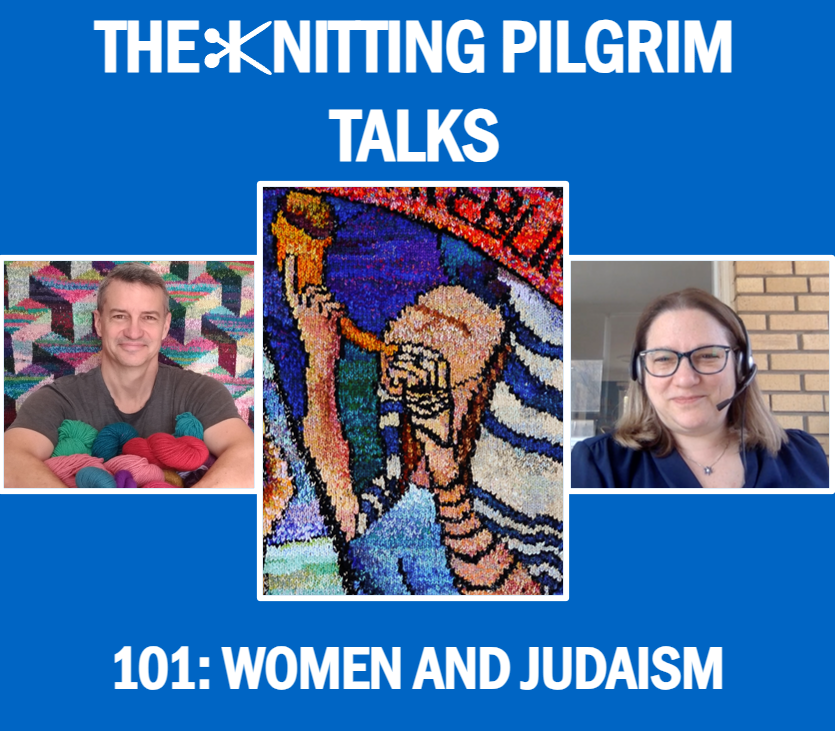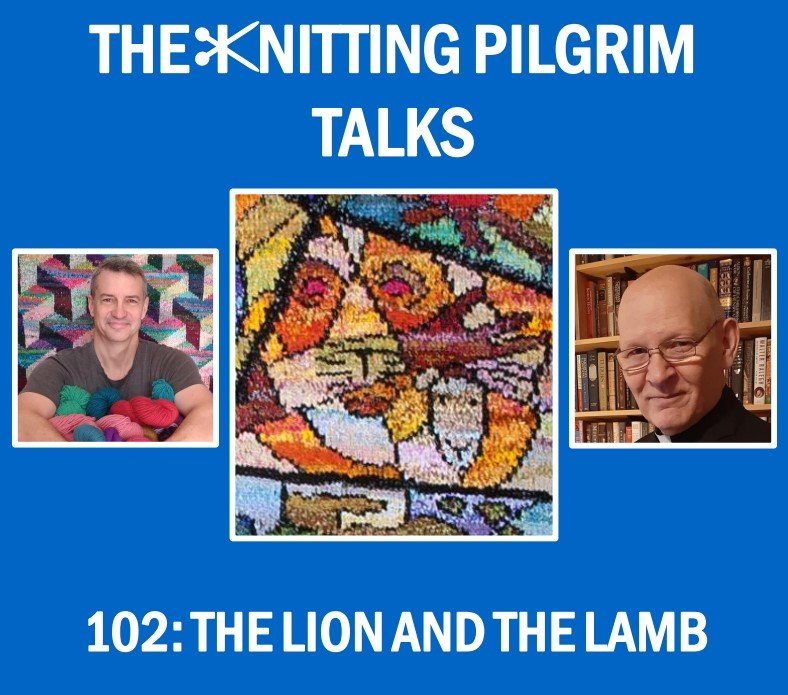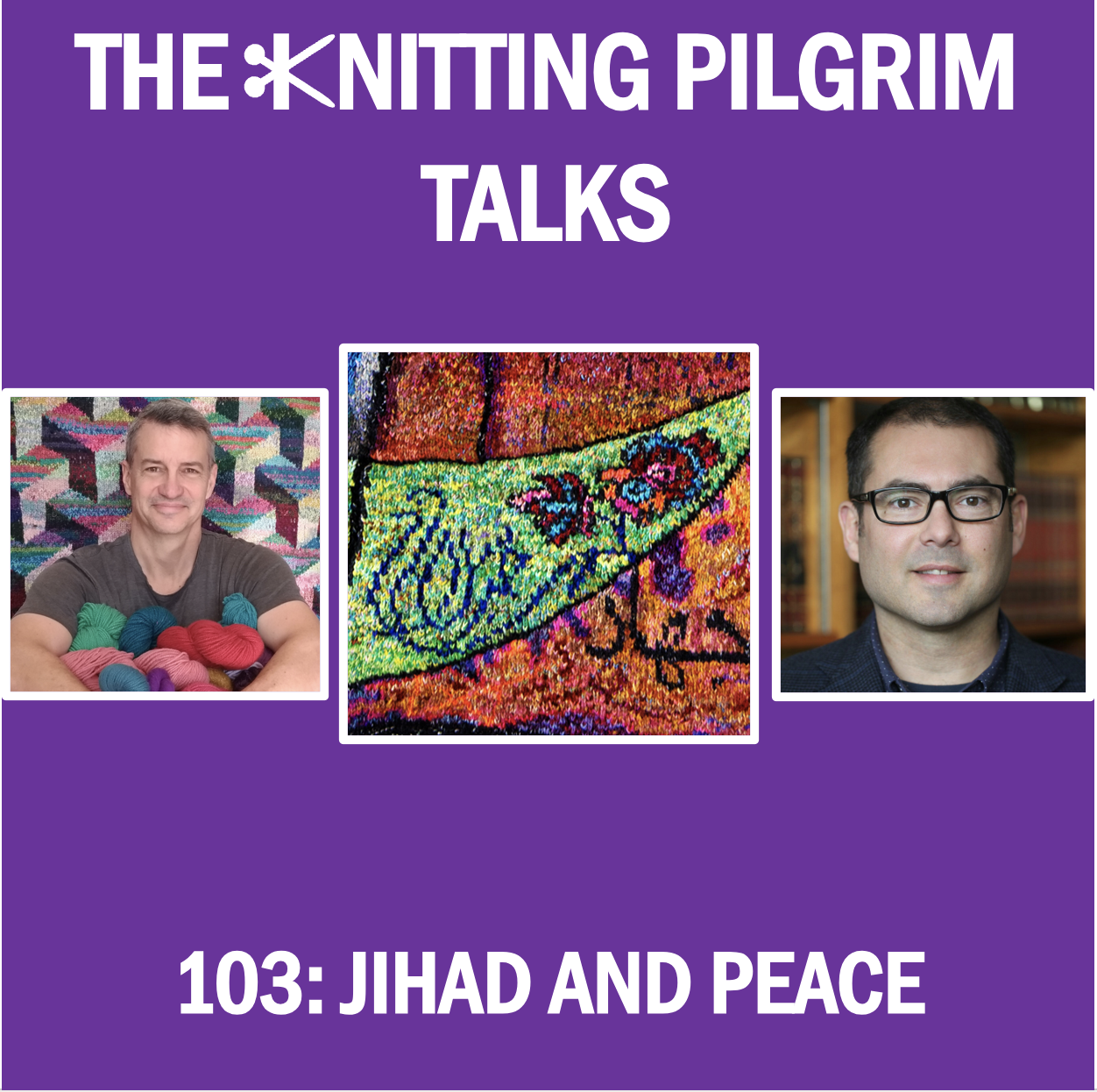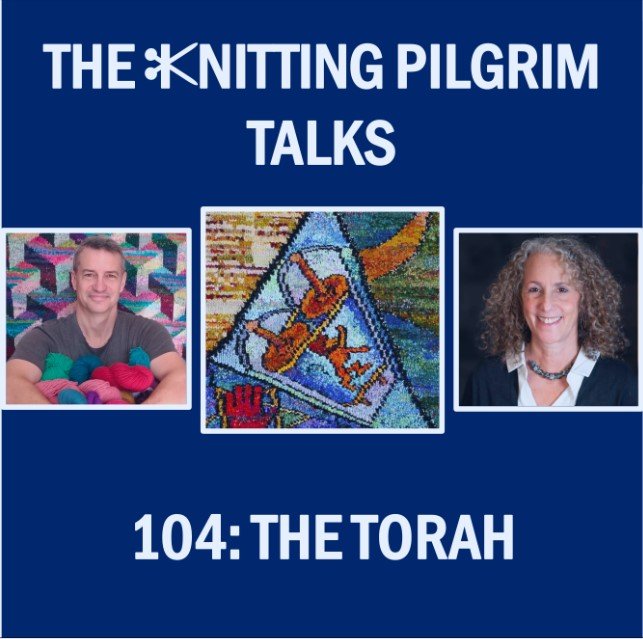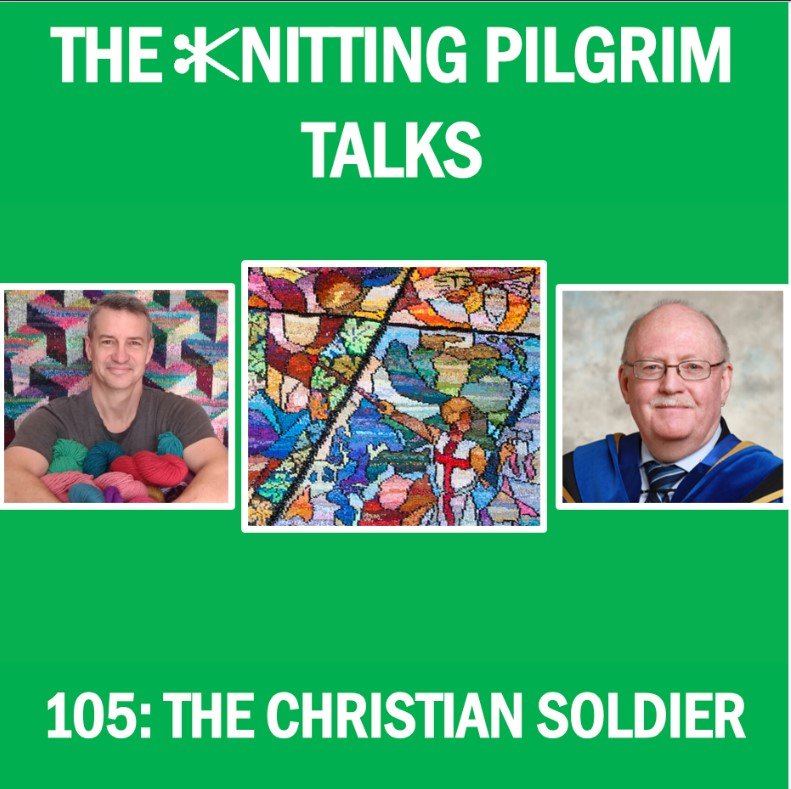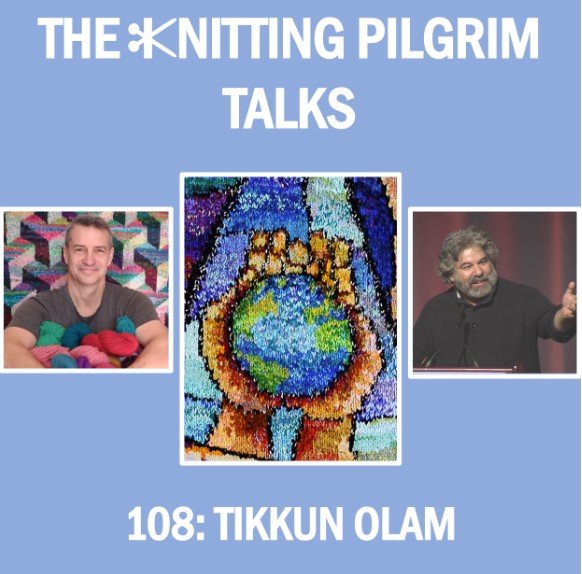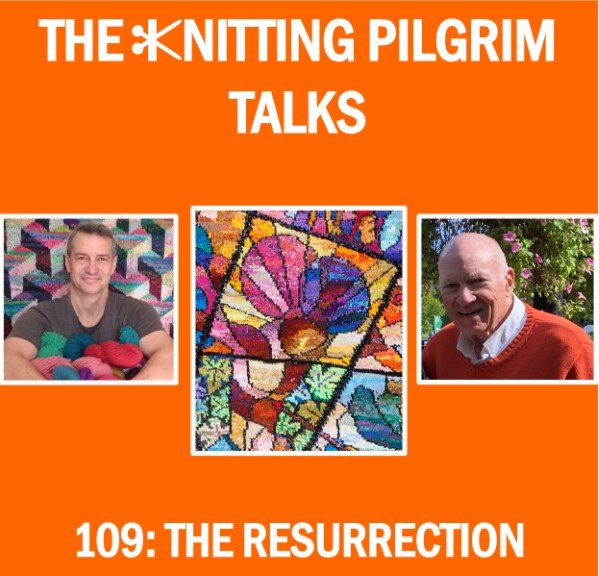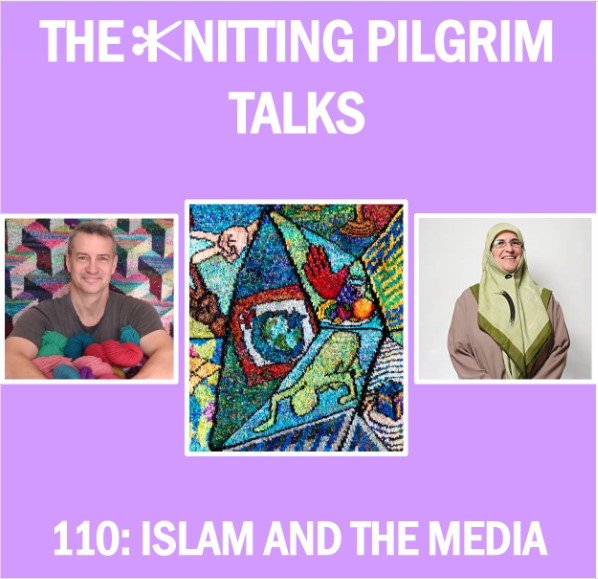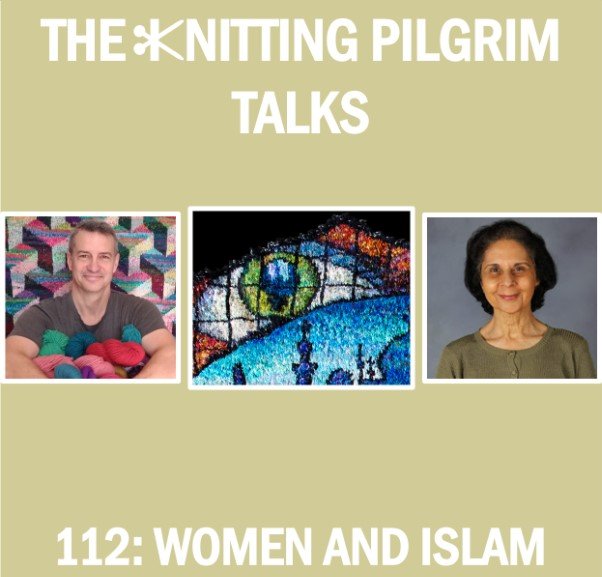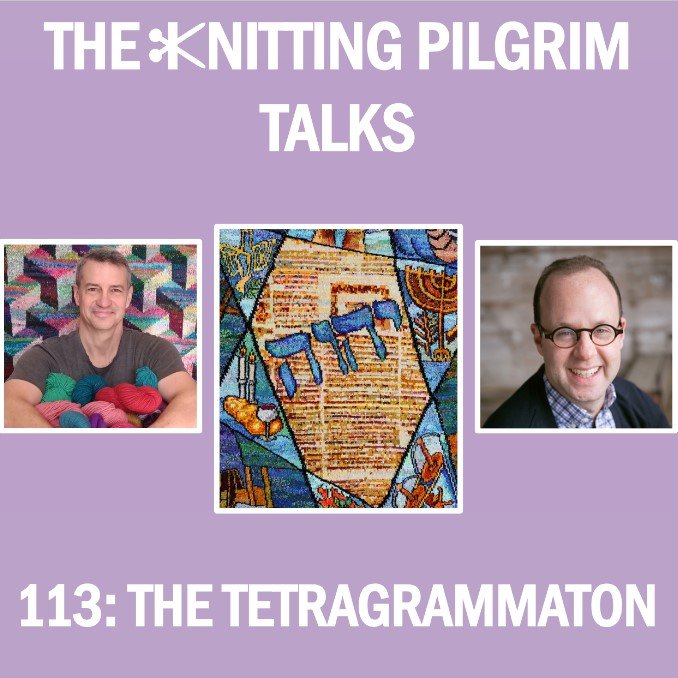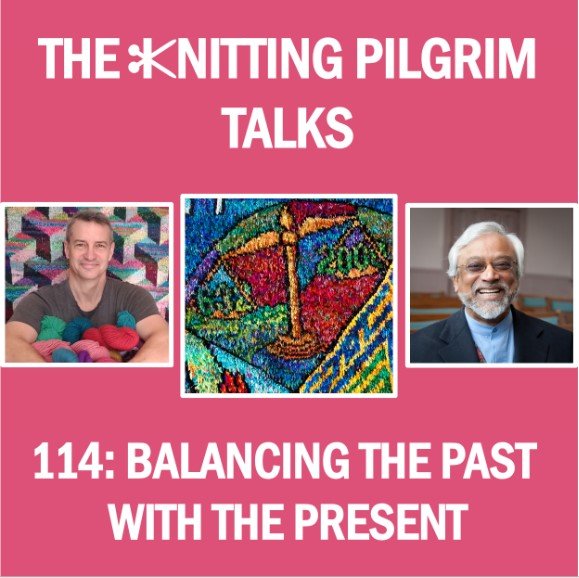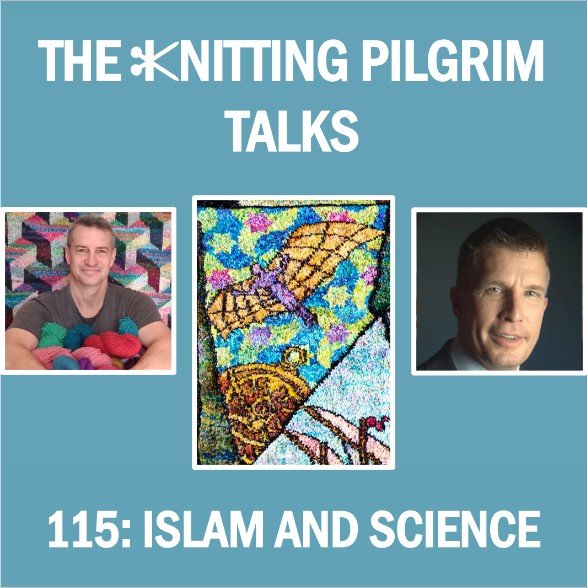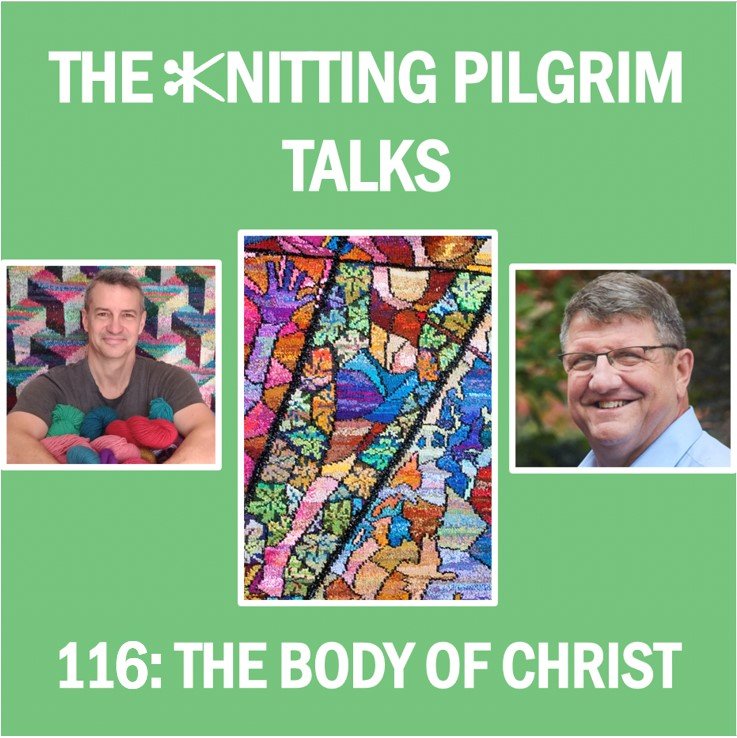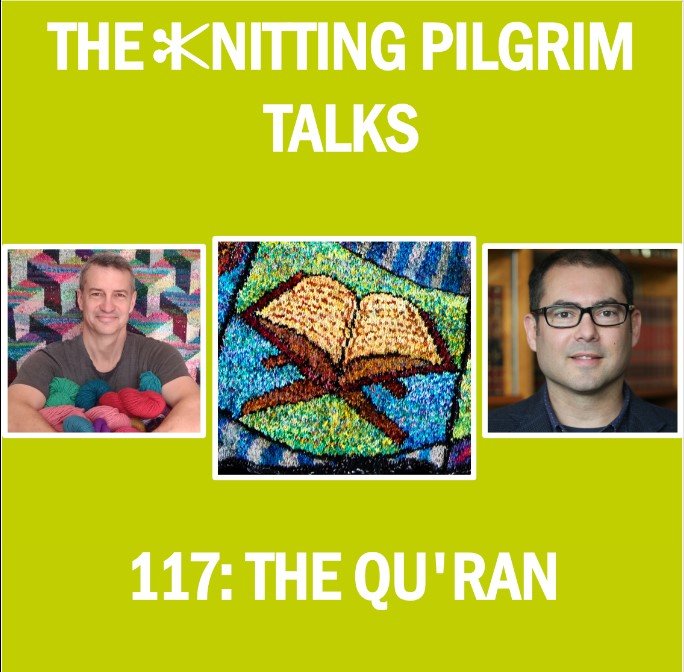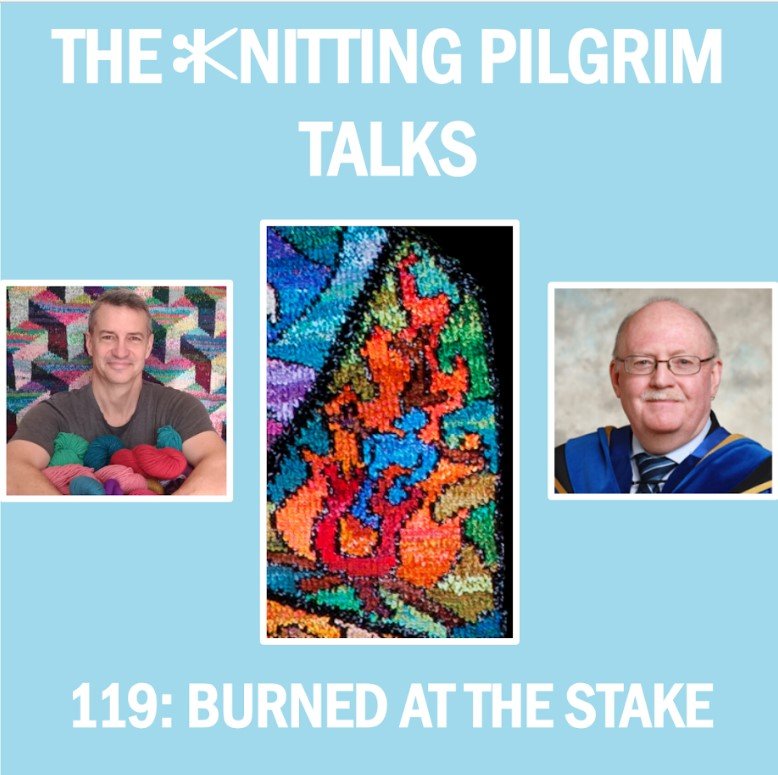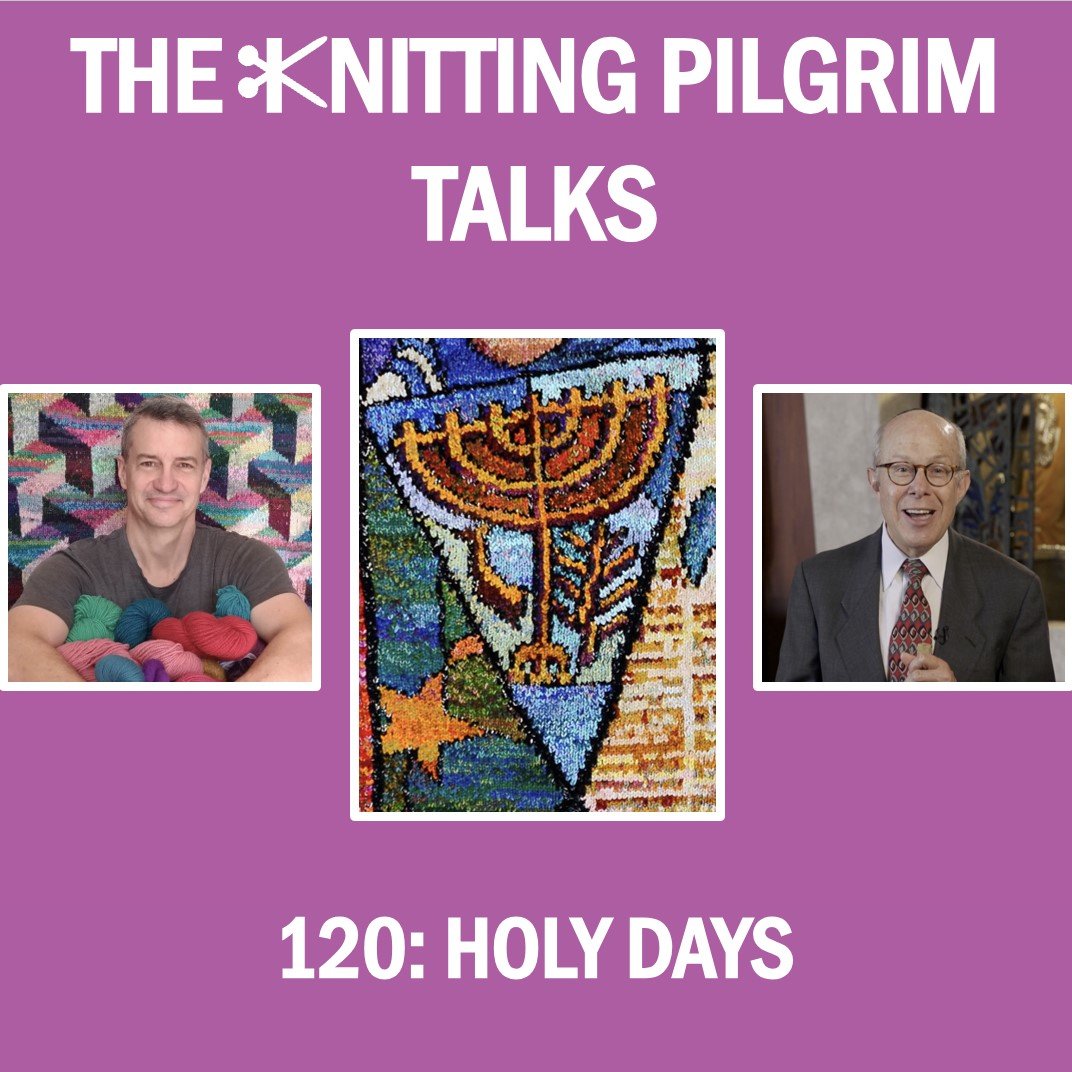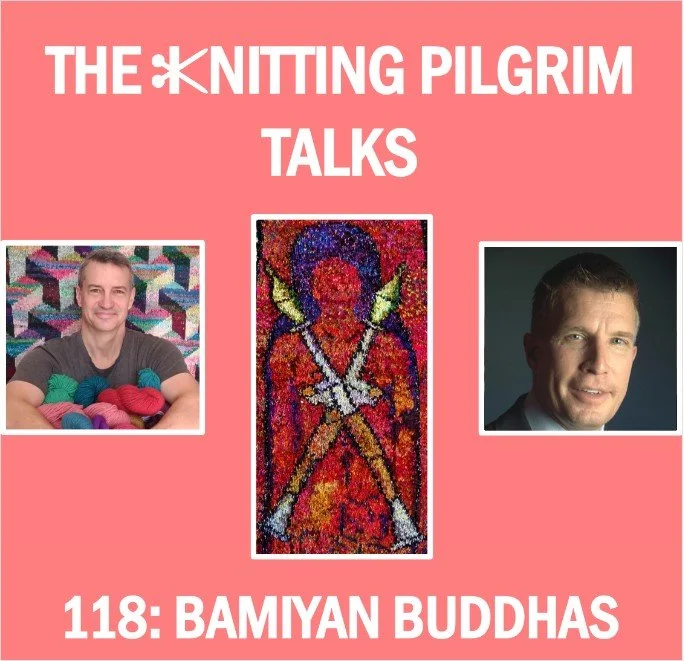

thE KNITTING PILGRIM TALKS
The Knitting Pilgrim Talks, co-created and executive produced by Kirk Dunn and Claire Ross Dunn, is a podcast and digital series about art and faith. Each episode is inspired by one section of a giant installation of three hand-knitted tapestries created by fibre artist Kirk Dunn called “Stitched Glass.” The tapestries, designed in the style of stained glass windows, look at the commonalities and conflicts of the three Abrahamic faiths: Judaism, Christianity, and Islam. In each episode, Kirk, a.k.a. The Knitting Pilgrim, interviews a member of an Abrahamic faith in gentle, easy conversation so we can all understand each other better.
thE KNITTING PILGRIM TALKS
The Knitting Pilgrim Talks, co-created and executive produced by Kirk Dunn and Claire Ross Dunn, is a podcast and digital series about art and faith. Each episode is inspired by one section of a giant installation of three hand-knitted tapestries created by fibre artist Kirk Dunn called “Stitched Glass.” The tapestries, designed in the style of stained glass windows, look at the commonalities and conflicts of the three Abrahamic faiths: Judaism, Christianity, and Islam. In each episode, Kirk, a.k.a. The Knitting Pilgrim, interviews a member of an Abrahamic faith in gentle, easy conversation so we can all understand each other better.
Watch episodes of The Knitting Pilgrim Talks on YouTube
Listen to episodes of The Knitting Pilgrim Talks on Spotify or find them wherever you source your podcasts.
Women and Judaism
This first episode of The Knitting Pilgrim talks deals with the section of the Judaic window depicting a female figure wearing a prayer shawl, tefillin, and blowing a shofar: all rituals, according to the Orthodox tradition, reserved for men. But are women actually excluded from these practices? I speak with Rabbi Jennifer Gorman about what Judaism actually says about women's place in the faith.
The Lion and The Lamb
In this episode of The Knitting Pilgrim Talks, we look at the Christian tapestry's section exploring the lion and the lamb, all about the power and vulnerability of Christ. I speak with Rev. Michael Coren about the irony that Jesus--whom Christians now call 'The King of Kings'--was actually an anti-establishment rebel.
In Western society, “Jihad” may be the most misunderstood word of the Arabic language. In this conversation with Imam Jihad Turk, we take a look at the true meaning of the word (and his name) and discuss the link between the adjacent sections of the Islamic tapestry depicting Jihad and peace
This section of the Judaic tapestry celebrates the Torah, the holy book of Judaism, on the shoulders of which both Christianity and Islam stand. Rabbi Elise Goldstein takes Kirk through the the importance of these texts in Judaism, how they are incorporated into the Sabbath service, and a few more things that he, as a Christian, didn't fully appreciate about what he had always thought of as "The first five books of the Bible."
This episode explores the Christian tapestry section depicting the paradox of the Christian solider, a vocation often held up by society as hero having paid the ultimate sacrifice of giving their life for their country. And yet, the vocation of soldiering is about as diametrically opposed to the example set by Jesus as one can get. Living in a country ruled by an occupying army, Jesus advocated non-violence and turning the other cheek. The Rev. Dr. Stuart Macdonald helps Kirk look at how the life of Jesus informs our response to the violence and war that we see in our world today.
The section of the Judaic window we explore in this episode evokes the Sabbath -- or Shabbat – and features images of a loaf of bread (challah), a pair of candlesticks, and a goblet of wine. These are all items that are a part of the meal that begins Shabbat. But Shabbat is much more than just a dinner – it is a day of rest, contemplation, and re-creation. It is one of the true gifts Judaism has given to the world, and it is a gift that most of us don’t really take the time to understand, appreciate, or enjoy. Journalist, author and spiritual advisor Ralph Benmergui talks to Kirk about the value of one day of being after six days of doing.
In episode 107 of The Knitting Pilgrim Talks, Imam Jamal Rahman explains to me that the word “Islam” literally means to surrender in peace. In the upper left section of the Islamic tapestry, inside the outline of the crescent moon, we can see five hands making the peace symbol, meeting at their extended fingertips. The five hands represent the five continents, and their five different skin tones represent all peoples. While Islam has its roots in 7th century Arabia, for Muslims it is a modern faith through which racial differences can be overcome
Within the Judaic window's top centre point of the Star of David, we can see a globe, cradled in a pair of hands. This image is a reference to the Judaic tradition of Tikkun Olam, repairing (or caring for) the world. Avrum Rosensweig, founder of the charity Ve’ahafta (Hebrew for “you shall love”) shares with Kirk that while Tikkun Olam may not be mentioned specifically in the five books of Moses, it is fundamental to the Torah.
The 9th episode of The Knitting Pilgrim Talks looks at the section of the Christian tapestry evoking the resurrection -- the Christian belief that Christ has risen from the dead, reassuring us that life in God cannot be killed by death. I speak with my father, The Rev. Dr. Zander Dunn, about the importance of this doctrine, the story of the empty tomb, and what that story means.
In Episode 110 of the Knitting Pilgrim Talks, we look at a section of the Islamic Tapestry dealing with the poor treatment Islam receives in Western media. I speak with Dr. Katherine Bullock about how the need for click-bait plays into a misunderstanding of the faith.
The Church and the Holocaust
In episode 111 of The Knitting Pilgrim Talks, I speak with Rev. Dr. Stuart Macdonald about the section of the "Stitched Glass" Christian tapestry evoking the poor performance of the Christian church with regards to the Holocaust during the Second World War. Looking at the image of the Star of David behind coils of barbed wire, we discuss the Antisemitism behind the Church’s silence, and its continued presence in our society today.
Women and Islam
In episode 112 of The Knitting Pilgrim Talks, I talk with Samira Kanji about women and Islam. At the top of the Islamic tapestry is a section featuring a feminine eye, partially obscured by mesh, evoking the Western impression that Islam is inherently patriarchal. But is that really the case? Samira takes me through the Qu’ran’s metaphysical equality of male and female, and the impact colonization has had on the patriarchy of Muslim societies. Samira Kanji is longtime President & CEO of Noor Cultural Centre, an Islamic religious, educational and cultural institution in Toronto dedicated to learning about Islam and Muslims.
The Tetragrammaton
In Episode 113 of The Knitting Pilgrim Talks, we look at the central image of the Judaic tapestry which features The Tetragrammaton (the four-letter Hebrew name for God) which has been superimposed over a representation of the Talmud. Rabbi Daniel Mikelberg (@danielmikelberg) of Temple Israel in Ottawa (@templeisraelottawa) takes me through the background of the Ineffable Name, and introduces me to the Talmud, a text created by ancient Rabbis to provide a path of how to live Jewishly in a non-Jewish world.
Balancing the Past with the Present
I spend time with Imam Jamal Rahman of the Interfaith Community Sanctuary in Seattle discussing the section of the Islamic tapestry that features a set of scales with the new millennium on one side and the year of the Prophet Muhammad’s death on the other. We talk about Islam’s challenge in balancing the past with the present, and are reminded that the progressive anti-patriarchal ideas of the Prophet are very much in line with the modern world.
Islam and Science
In Episode 115 of The Knitting Pilgrim Talks, I chat with accomplished physician, scientist, theologian, and Muslim community leader Dr. David Liepert about Islam and science. We use the Islamic tapestry’s image of a winged figure (that of Abbas Ibn Firnas, who experimented with flight in the 9th century CE) as a jumping-off point for a conversation about the incredible contributions and technological breakthroughs made by Muslim mathematicians, engineers, and physicians throughout history.
The Body of Christ
In Episode 116 of The Knitting Pilgrim Talks, I speak with the Rev. Dr. John-Peter Smit about a section of the Christian tapestry depicting the Body of Christ – a euphemism for the Christian Church. We talk about the challenge the church faces to incorporate many disparate views of the faith, and the mystery of the sacrament of communion through which Christians can experience the holy. Rev. Dr. John-Peter is the recently retired Regional Minister for Congregational Health for the Synod of Central, Northeastern Ontario, and Bermuda.
The Qu’ran
In episode 117 of The Knitting Pilgrim Talks, I speak with Imam Jihad Turk of the Bayan Islamic Graduate School about the holy book of Islam, The Qu’ran. We talk about the history of the Qu’ran, its importance to Islam, and its consistent thematic message to Muslims about how they should live their lives with justice, compassion, mercy, truth, and beauty
Bamiyan Buddhas
In Episode 118 of The Knitting Pilgrim Talks, I welcome back accomplished physician, scientist, theologian, and Muslim community leader Dr. David Liepert as we chat about the section of the Islamic tapestry depicting a 6th century statue of Buddha in the Bamiyan province of Afghanistan, and how the Taliban twisted the Islamic prohibition on idolatry to justify its destruction.
Burned at the Stake
In episode 119 of The Knitting Pilgrim Talks, Kirk speaks with Rev. Dr. Stuart Macdonald, professor of Church and Society at Knox College, University of Toronto, about the section of the Stitched Glass Christian window tapestry depicting a corruption of the burning bush: a figure being burned at the stake. While the church’s response to heretics or non-believers is no longer so drastic, Kirk and Stuart discuss the kind of thinking that can lead to such extreme responses to theological differences.
Holy Days
In episode 120 of The Knitting Pilgrim Talks, Kirk speaks with Rabbi David Seed of the Adath Israel Congregation in Toronto about importance of Holidays—or ‘Holy Days’—in Judaism. They discuss a section of the Stitched Glass Judaic tapestry depicting a shofar, a menorah, and a lulav—ritual items central to Jewish holidays, which are days set apart as being separate, unique, and which give us an opportunity to reflect on the gifts we have been given in this life…particularly, the gift of time.
For the Knitting Pilgrim Talks
Executive Producers: Kirk Dunn & Claire Ross Dunn
Supervising Editor: Alex Fensham
Editors: Alex Fensham, Kate Brascoupe, Jordana Valerie Allen-Shim
Opening Credit Video: John Tarver
Music: Debashis Sinha
Stills Photography: Georgia Kirkos
Make it stand out
Whatever it is, the way you tell your story online can make all the difference.
